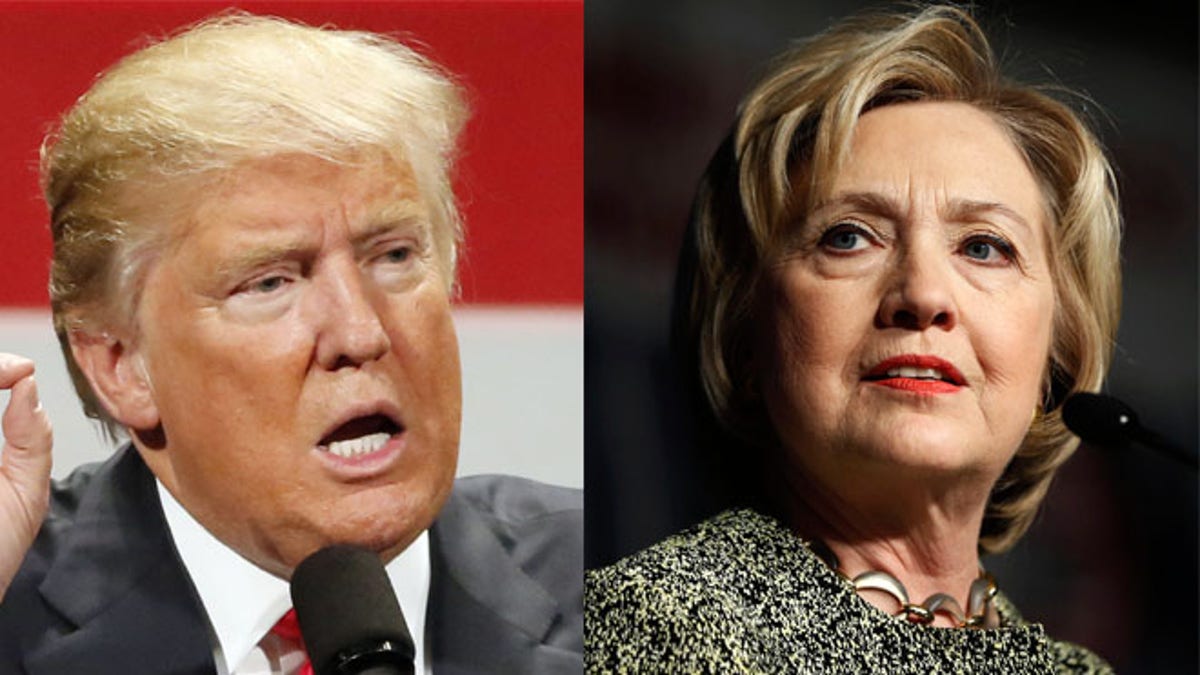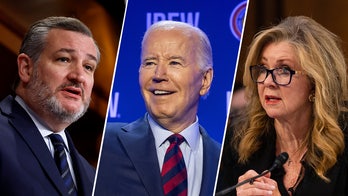
With less than a week to go before Election Day, Hillary Clinton and Donald Trump are focusing on swaying two battleground states in which Hispanic voters are expected to make the difference.
Clinton is pressing on reliably red Arizona as she tries to steal a Republican state away from her rival. Trump is laser-focused on Florida, where the Interstate 4 corridor – a destination for many Puerto Ricans fleeing the island – is the swing state’s primary battleground.
In both states, the candidates are warning of dire consequences if the other is elected into the White House.
Trump says Clinton would be under investigation as president, sparking a "constitutional crisis," though the FBI has declined to prosecute her for her handling of classified information. Clinton has vowed the FBI will have "no case" after reviewing new emails, but her campaign is nervous about tightening polls and ramping up attacks on Trump, hoping to scare away voters who could still be persuaded to back him.
On her own Florida swing Tuesday, Clinton hammered Trump as dangerous and divisive, highlighting in particular his treatment of women.
"When I think about what we now know about Donald Trump and what he's been doing for 30 years, he sure has spent a lot of time demeaning, degrading, insulting and assaulting women," Clinton said.
Clinton was joined by former Miss Universe Alicia Machado, who made headlines after the second debate for claiming Trump criticized her for gaining weight.
Clinton's renewed focus on Trump's demeaning comments on women seemed aimed in part at baiting a response from the notoriously thin-skinned Republican.
Always important in presidential contests, Florida has emerged as this year's most crucial state on the road to the 270 Electoral College votes needed to win the White House. Trump can't win without carrying Florida, meaning Clinton can deliver a knockout blow if she captures its 29 electoral votes.
Even with national polls narrowing, Clinton has several more paths to 270 than Trump. Her campaign is underscoring that political reality with a stop in Arizona Wednesday, a state that has voted for Republican presidential candidates all but once since 1952.
Clinton's campaign says it's buoyed by early voting turnout among Arizona Democrats, as well as Clinton's support among Hispanics turned off by Trump's hardline immigration policies. Democrats have been eyeing Arizona as a possible swing state in recent years, but believe Trump's unpopularity with Hispanics has expedited that evolution.
Trump, however, did not immediately take the bait. He spent Tuesday relentlessly on message, eschewing wild tangents and political fights in favor of carefully scripted remarks focused on health care and attacks on his opponent. He cautioned that Clinton's plan to strengthen "Obamacare" would lead to dire consequences, although he offered few specifics about his own plan.
"If we don't repeal and replace Obamacare, we will destroy American health care forever," Trump charged in a speech outside Philadelphia.
He also promised, if elected, to call a special session of Congress to replace the law. However, Congress would already be in session when the next president takes office, raising the question of just what he meant.
Still, frustrated Republicans were encouraged that Trump was focusing on policy prescriptions — for one day, at least — after a roller-coaster campaign marked by self-created controversy and political missteps.
Meanwhile, both sides continued to spar over the recent revelation that FBI investigators are again probing Clinton's email practices.
A lawyer for Clinton aide Huma Abedin said Tuesday that her client learned from media reports last Friday that a laptop belonging to her estranged husband, Anthony Weiner, might contain some of her emails. The attorney said Abedin has not been contacted by the FBI about the development and she will cooperate if asked.
The revelation has put Democrats on the defensive, at least briefly, and hurt Clinton's plans to promote a positive message over the campaign's final week.
"The Trump campaign is on the offensive and we're expanding our map," Trump aide David Bossie said, suggesting the campaign now sees opportunities to compete in traditional Democratic states such as New Mexico and Michigan.
Yet few Republican or Democratic operatives view the email news as a game-changer in the race for Senate control. The balance of power in Congress could have profound consequences for the future of health care in America, among other policy debates.
A super PAC is spending $10 million on nationwide TV ads saying Clinton is too scandal-plagued for office, an investment that comes as the Republican makes the same case on the campaign trail. An ad debuting Wednesday by Future 45 – which counts conservative billionaires Joe Ricketts and Sheldon Adelson as its biggest donors – calls the FBI's Friday revelation a "new bombshell."
Based on reporting by the Associated Press.




